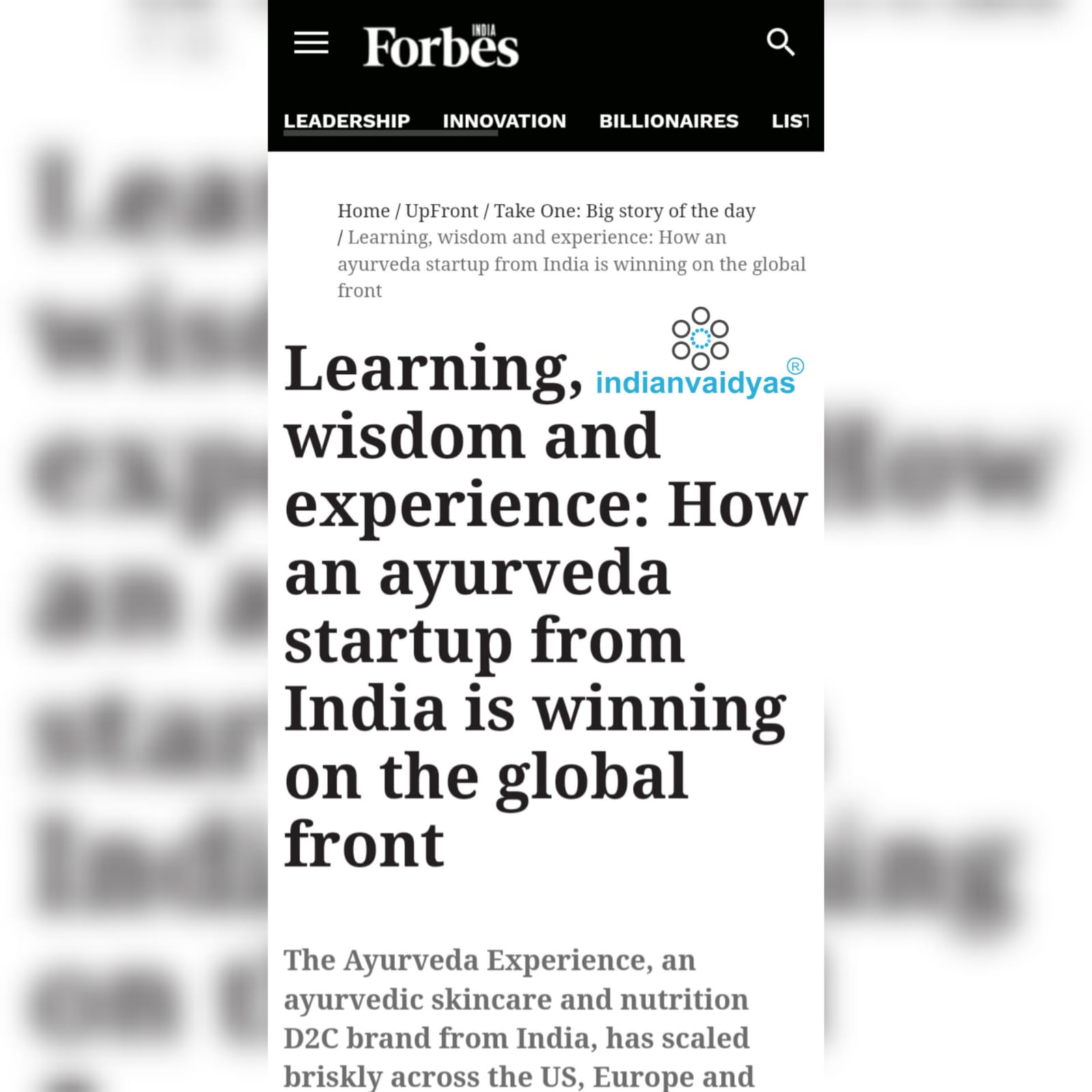Learning, wisdom and experience: How an ayurveda startup from India is winning on the global front
23-Jun-23 04:43:16

Experience can be seductive. And its illusionary impact can hit you hard, especially if you happen to be an 18-year-old. This is what happened with Rishabh Chopra, who joined AIESEC when he was in the first year of his college in 2002, and after graduating got himself enrolled as a full-time soldier in the not-for-profit largest student organisation in the world that had a presence across 100 countries.
“At 23, you get to run a global organisation, and the feeling was surreal,” recalls the Delhi boy who headed AIESEC in India for a year, criss-crossed 28 countries in 15 months, and got to see how stalwarts like Adi Godrej and Deepak Parekh—who were on the AIESEC board—worked. “Imagine the experience. It changes your world, outlook and aspirations,” he recounts.
The experience, indeed, was changing the world of the young boy. Filled with an exaggerated sense of confidence, Chopra dreamt of conquering the world towards the end of 2008 when he left the organisation after a heady stint of around six years. “I knew nothing could stop me,” recalls Chopra, who joined a firm in Malaysia and worked for over 7 months. “They used to sell personal development content to consumers in the US, Europe and Australia,” he says. It was an exciting time, and Chopra was preparing himself to embrace a world of endless possibilities. “I gained rich experience,” he says.
Experience can be compelling. At least in Chopra’s case, one can say so. If AIESEC expanded the canvas of his possibilities, and a brief stint in Malaysia showed that there was money to be made, a harsh ground reality inserted realism into his grand plans. Chopra’s family business of textile was in shreds: The original debt of Rs 1.5 crore had ballooned to over Rs 4 crore, and the only way to put the house in order was not to continue in a job but to start a business where one could make hefty money. “Financial constraints compelled me to start my venture,” he says.
Towards the end of 2009, Chopra dabbled in two businesses. The first traced its roots to his truncated term with the Malaysian company. One of the senior members of the company promised technical support, encouraged Chopra to start an early education programme in India, and ensured that she would arrange the franchisee licence for running the American company’s programme. The prospects were promising, but there was a small problem. Chopra got himself enrolled at Indian School of Business (ISB) for an MBA, and was not in a position to do the business fulltime. So he convinced one of his close friends to leave his job in Singapore, relocate to India and run the education venture till the wannabe founder graduated.
SOURCE & CREDIT: FORBES